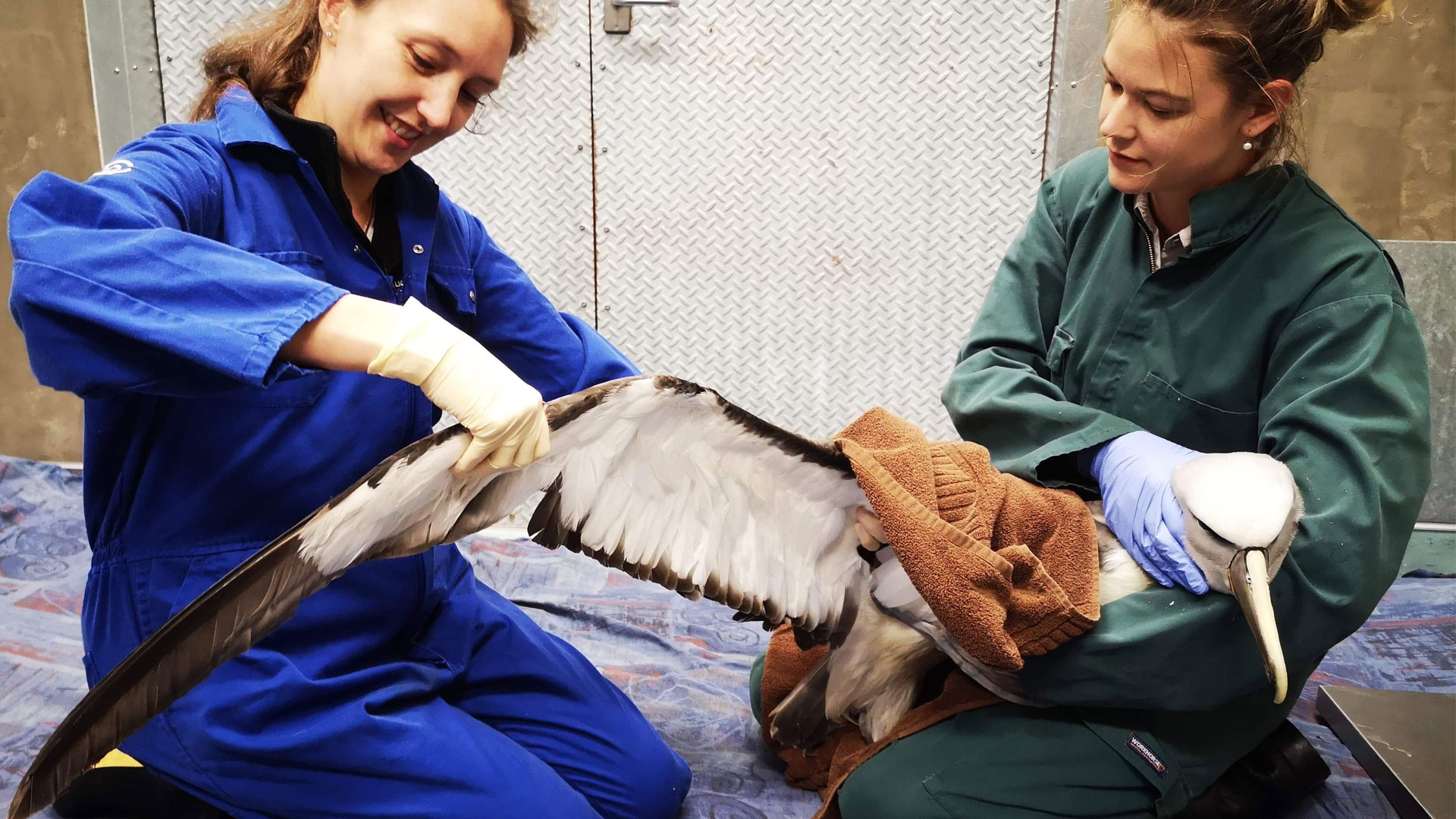We’re carrying on the theme of #Seaweek today by continuing to shine a light on the incredible marine species of Aotearoa.
Earlier this year our veterinary team cared for a Salvin’s mollymawk, a species of native albatross that breeds primarily on New Zealand’s outlying islands. Found collapsed, pale and dehydrated by a concerned member of the public, this albatross was collected by the Animal Rescue and Rehabilitation Centre Wildlife Trust (ARRC) on behalf of the Department of Conservation and after an initial assessment at the veterinary hospital in Tauranga , brought to our Auckland Zoo Vet Hospital for examination.


